Lithuanian Court Declares anti-LGBTI law unconstitutional
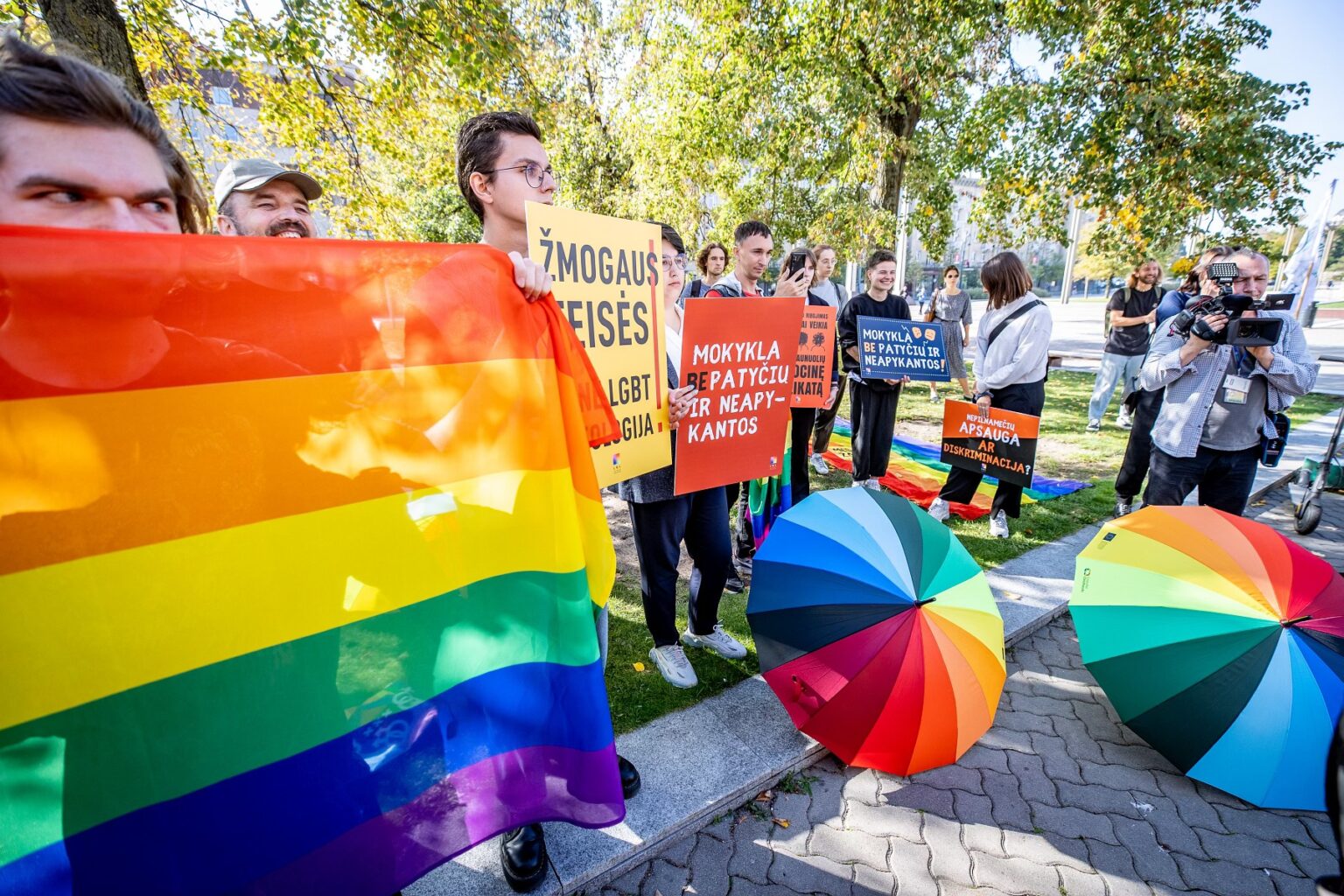
In a significant decision yesterday, Lithuania’s Constitutional Court ruled that a 15-year long ban on public depictions of LGBTI families should be repealed.
The Constitutional Court of Lithuania has declared the anti-LGBTI provisions of the Law on the Protection of Minors from Negative Effects of Public Information unconstitutional. These provisions, in place since 2009, had prohibited the depiction of LGBTI families in the public sphere, effectively stifling representation at public events and in the media.
The decision follows the European Court of Human Rights’ 2023 ruling in Macatė v. Lithuania, which found the law to violate Article 10 of the European Convention on Human Rights, safeguarding the right to freedom of expression. ILGA-Europe supported this case through a third-party intervention alongside Article 19 and the International Justice Clinic.
ILGA-Europe in association with the Lithuanian Centre for Human Rights and the Human Rights Monitoring Institute also supported our member organisation, LGL, through a Rule 9 submission to the Committee of Ministers of the Council of Europe concerning the implementation of the Macatė judgment.
The court’s reasoning empahsizes that:
- Information about diverse family models cannot be deemed inappropriate for minors.
- Laws must uphold respect for human rights, dignity, equality, pluralism, and tolerance.
- Minors deserve access to information that fosters their development into mature, well-rounded individuals.
According to Katrin Hugendubel, Advocacy Director at ILGA-Europe: “This landmark ruling marks a significant step towards ensuring that the rights of LGBTI people are respected in Lithuania. With this ruling, the anti-LGBTI provisions become ineffective and cannot be applied anymore. This is another confirmation from a highest courts that such laws are a violation of human rights and other courts should follow suit.”
Find out more about the current situation of protection of human rights of LGBTI people in Lithuania, on our interactive Rainbow Map.
For further context and details, see LGL’s statement here.
The ILGA-Europe conference, the largest LGBTI conference in Europe and Central Asia, meets in Bucharest this weekend
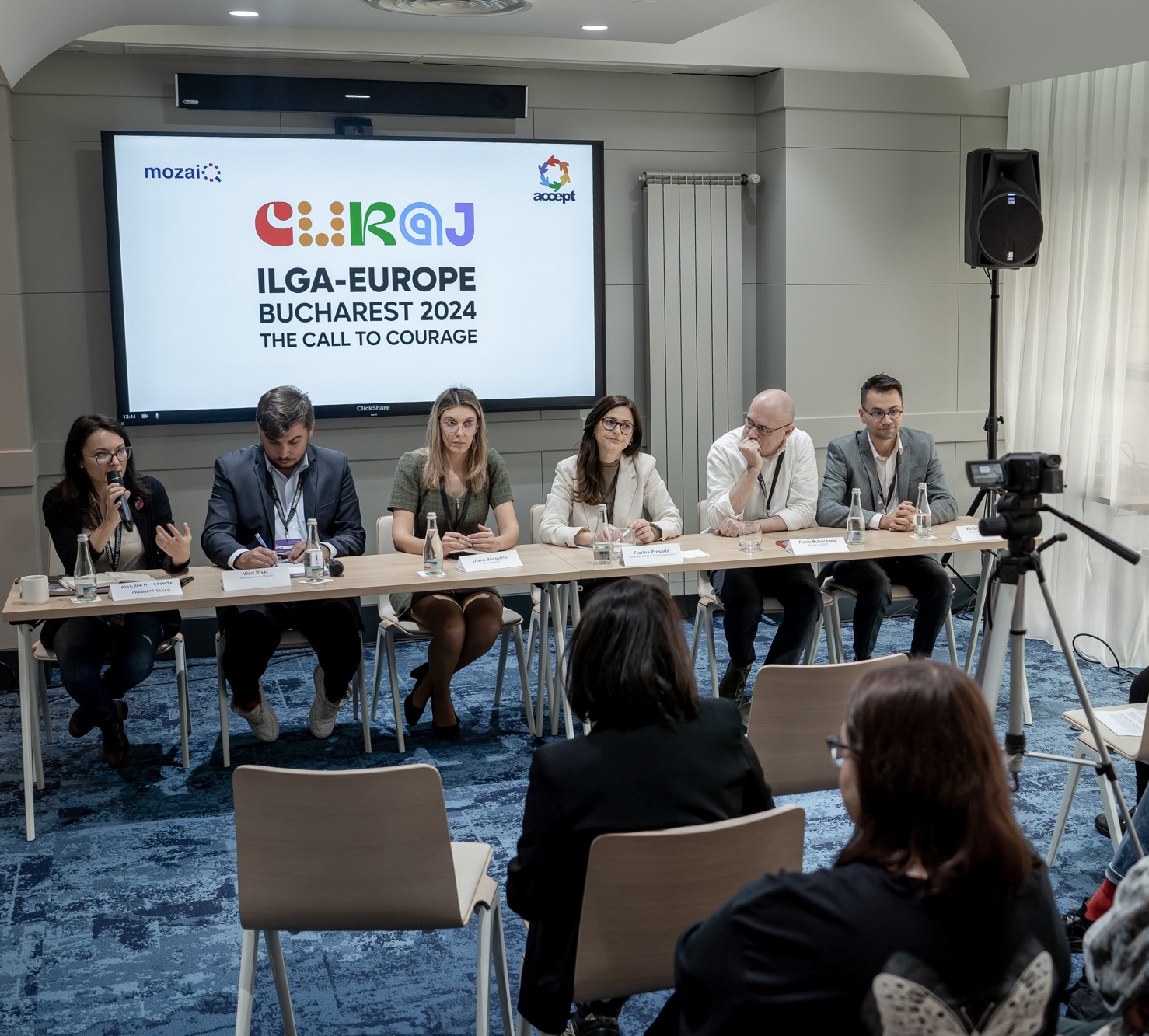
The ILGA-Europe Annual Conference, the largest LGBTI conference of its kind in Europe, has brought over 400 LGBTI activists from across Europe and Central Asia to Bucharest.
Co-organised by ILGA-Europe member organisations from Romania, Accept and MozaiQ Associations, the theme of this year’s Annual Conference is ‘The Call to Courage’, reflecting the need for constant and fearless engagement in the movement for LGBTI human rights and equality. The event aims to address issues facing the LGBTI community in Europe, so that international activists can exchange experiences and discuss topics important to the movement at a European level. It also represents a crucial opportunity to strengthen solidarity and collaboration among LGBTI organisations in the region, in the context of the rise of conservative and populist movements in several European countries.
Commenting on the choice to hold the Conference in Romania this year, ILGA-Europe’s Advocacy Director, Katrin Hugendubel said: “As Romania gears up for elections, and at a time when the rights, protections and lives of LGBTI people are more at risk now than in the last decade, we are in Bucharest for the ILGA-Europe conference over with 400 LGBTI activist participants, from 52 countries. The European Courts have made two judgements saying Romania should recognise both same-sex partnerships and gender recognition that have taken place in another EU country. It is time that Romania caught up with the majority of the European Union and implemented these judgements. Romania also needs to put in place legislation to recognise partnerships and rainbow families, so that the human rights of LGBTI people can be respected and protected, instead of being used as political scapegoats with attempted legislations to limit their human rights.”
Failures in Romania
Judgements against Romania’s at the European Court of Human Rights (ECHR) and the Court of Justice of the European Union (CJEU) are among the topics addressed during the Conference, including the need to recognise same-sex families, as well as the protection of the rights of the transgender community. These topics underline both the failures of the Romanian government in protecting fundamental rights and the urgency with which these rights violations must be remedied. These challenges are amplified by an increasingly polarised political climate, where hate speech and attempts to limit minority rights are on the rise.
In addition, the conference is being held at an essential moment for Romania, given that this year is an election year. The November-December parliamentary and presidential elections will test Romanian politicians’ commitment to democratic values and respect for fundamental rights. At a time when repressive anti-LGBTI legislation from the Russian playbook is being promoted in neighbouring countries, Romania must reaffirm its commitment to the protection of all its citizens.
According to Victor Ciobotaru, Executive Director of the Accept Association Romania: “LGBTI people have never asked for special rights. We want equal rights for ourselves and our families. Politicians have probably never done this exercise of compassion of putting themselves in the other person’s shoes, in the shoes of the person you represent, to think about what it’s like to live for 25 years with someone and not have the certainty that you can be with that person in difficult moments, such as if they have health problems, if an accident occurs, or if the other person dies. These are the pressures and fears we live with every day. Every day that goes by waiting for politicians to respect our rights, is a day when real people suffer.”
Vlad Viski, the Executive Director of MozaiQ added: “We have to put a mirror in front of the political class regarding LGBTI people in Romania. There are hateful political attitudes, which are still acceptable in the Romanian Parliament and now Romania is in the situation where it is one of the last five countries in the EU that does not recognise same-sex couples, while there are judgements on partnership rights and legal gender recognition from the EU courts that are yet to be implemented.”
According to Renate Weber, Ombudsperson for Romania: “The first thing we need, and this would be a major step forward, is a civil partnership law that applies to everyone, both same-sex couples and heterosexual couples, in a non-discriminatory manner. We need this if we want people to come to terms with change.”
Political candidates for the forthcoming Romanian parliamentary elections who attended the press conference also gave comments:
“The LGBTI community does not benefit from any kind of regulation of their rights in relation to state institutions. This is discrimination. Failure to regulate social situations invites discourses that incite discrimination, exclusion and even hatred,” said Andreea Leonte, candidate on the lists of the REPER party in the parliamentary elections.
“Politicians lack courage, but they are also ignorant,” said Diana Buzoianu, USR deputy and USR parliamentary candidate. “Not seeing the injustice in front of you is a form of huge ignorance. The biggest obstacle is their mentality, that no matter what they do, no one will hold them accountable. Those in parliament are ultra-privileged.”
“There is a need for commitment, courage and solidarity,” added Florina Presada, former Executive Director of Accept and candidate on the lists of the SENS Movement for parliament. “LGBTI people need more than civil partnership, they need more than half measures. The full right is civil marriage and everything that derives from it is needed. This means protecting the family in Romania. Let’s stop operating with half measures.
“Only through joint efforts can we build a society where every individual, regardless of their sexual orientation or gender identity, feels respected and protected. It takes courage not to let hatred and discrimination become the norm, and activists from across Europe and Central Asia gathered here are a voice of solidarity and resistance against injustice.”
Joint statement: Welcoming European Court judgement on Poland’s failure to protect same-sex couples married abroad
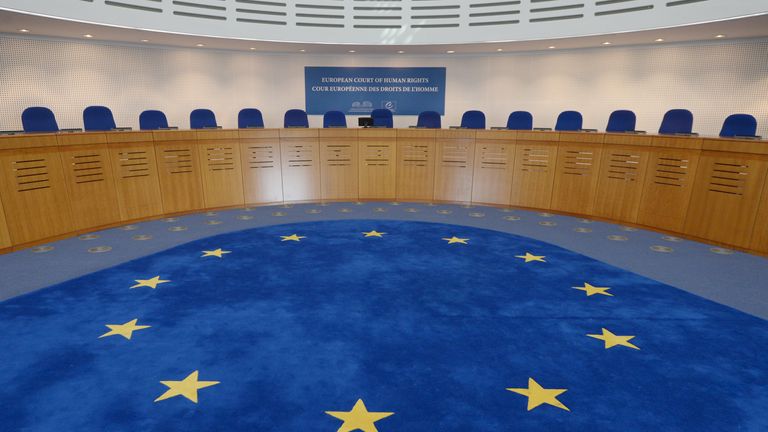
The European Court of Human Rights has found that Poland breached the right to respect for the family life of two same-sex Polish couples married abroad by failing to recognise their relationships.
ILGA-Europe, the International Federation for Human Rights (FIDH), the Network of European LGBTIQ* Families Associations (NELFA), and the European Commission on Sexual Orientation Law (ECSOL) jointly welcome a ruling released today in the case of Formela and others v. Poland, in which the European Court of Human Rights (ECtHR) found that Poland violated Article 8 (the right to respect for private and family life) of the European Convention on Human Rights.
The case concerned two same-sex Polish couples who married respectively in the UK and in Denmark, and requested Polish authorities to register their marriages contracted abroad. The authorities dismissed the requests, finding that registering their marriage would be contrary to the Polish legal order which allowed only marriage between different-sex couples. This failure resulted in the applicants’ inability to regulate fundamental aspects of their daily lives: they were prevented from taking leave to care for their ill partner; could not extend health insurance to cover their partner; were treated as being unrelated in the field of taxation and could not benefit from an exemption from donation tax granted to next-of-kin or from the right to submit a joint tax declaration.
The Court decided that “by refusing to register the applicants’ marriages under any form and failing to ensure that they have a specific legal framework providing for recognition and protection, the Polish authorities have left them in a legal vacuum and have not provided for the core needs of recognition and protection of same-sex couples in a stable and committed relationship.” The Court added that none of the public interest grounds put forward by the Polish authorities could prevail over the applicants’ interest in having their respective relationships adequately recognised and protected by law.
The Court referred to its landmark judgement of December 2023 in Przybyszewska and others v. Poland finding that Poland had breached Article 8 of the Convention as it had failed to comply with its positive obligation to ensure that same-sex couples had a specific legal framework providing for the recognition and protection of their unions.
Poland is also bound by the 2018 Court of Justice of the European Union Coman landmark ruling requiring EU Member States to treat same-sex couples in the same way as different-sex couples when they exercise freedom of movement rights in the EU.
On 27 December 2023, Poland’s Prime Minister, Donald Tusk, announced that a bill to legalise same-sex unions would be introduced and debated in early 2024. This bill was added to the government’s agenda on 8 July 2024.
Annamaria Linczowska, Advocacy and Litigation Officer at Campaign Against Homophobia (KPH) in Poland said: “Today’s verdict shows once again that through lack of legal protection and recognition of same-sex couples, Poland does not meet the Council of Europe standards of human rights protection. Poland should no longer be one of the few CoE Member States that do not provide recognition for same-sex couples. This judgement is an important argument for implementation of civil unions and marriage equality in Poland. To provide a wide protection of human rights, Poland can not forget about same-sex couples and their safety.”
Read KPH’s press release here.
According to Milena Adamczewska-Stachura, who represents the Love Does Not Exclude Association, involved in the fight towards marriage equality in Poland: “Today’s rulings are a wake-up call for the Polish government, reminding it that the unchanging, complete lack of protection for same-sex couples violates the European Convention on Human Rights. Today’s judgement is an important tool for legal practitioners who fight in the courts for transcription of foreign marriage certificates, and a small but important step towards equality.”
ILGA-Europe, FIDH, NELFA and ECSOL submitted a joint intervention in the case.
According to Senior Strategic Litigation Officer at ILGA-Europe, Marie-Hélène Ludwig: “Today’s judgement is another important step towards due recognition and protection of same-sex couples in Poland, whether they are married abroad or wish to legalise their unions in Poland. It is however unfortunate that the Court considered once again that it was unnecessary to examine the applicants’ complaint under Article 14 of the Convention (non-discrimination).”
Daniel Martinović, President of NELFA, said: “We welcome today’s judgement as a powerful affirmation of the rights of same-sex couples in Poland and beyond. This ruling should serve as a beacon of hope and strength for all queer families, inspiring us to continue striving for a more inclusive and secure future where our relationships are recognised, respected, and protected.”
Helmut Graupner, Co-Coordinator of ECSOL, pointed out that “this is the second time Europe’s highest human rights court made clear that Poland is violating the European Convention of Human Rights by refusing same-gender couples formal recognition of their partnership. It should cause Poland to speedily meet European minimum human rights standards. If not going beyond them, as it had done by completely decriminalising homosexuality as early as 1932 when many other European countries like Great Britain, Germany, Austria, Switzerland, Czechoslovakia, Hungary, Norway and Finland still had a criminal total ban on consensual homosexual relations between adults.”
“Today’s European Court of Human Rights’ ruling sends a strong message to Poland and all Council of Europe member states that they must urgently address the persistent discrimination against same-sex couples and grant them equal rights with heterosexual couples’ concluded Elena Crespi, Head of the Europe Programme at FIDH. “The judgement also offers the Polish government a chance to demonstrate its commitment to implementing European court rulings, as part of its efforts to restore the rule of law and align Poland with international standards’.
Greece adopts historic bill introducing marriage equality
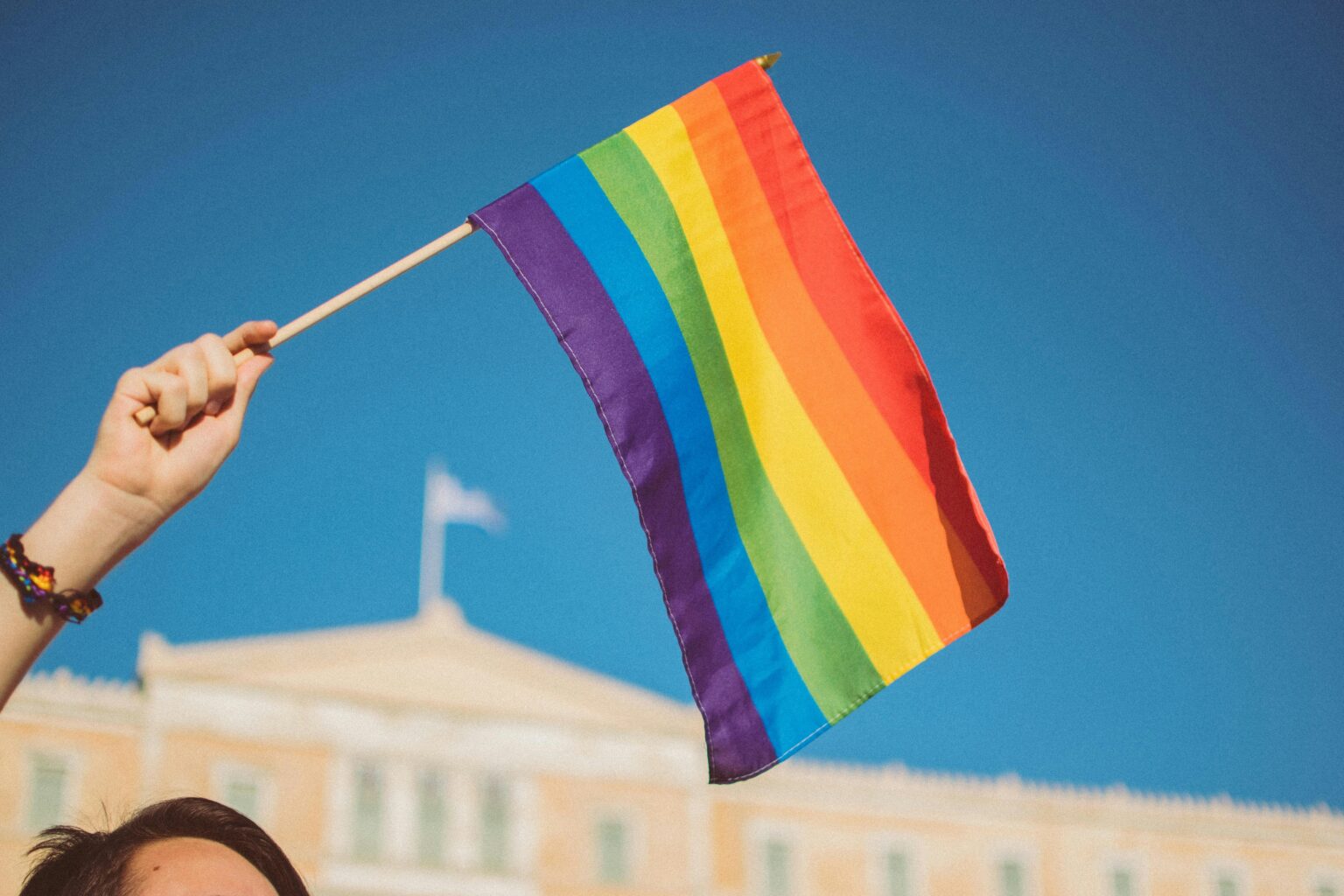
We welcome and celebrate with local activists the news that the Greek parliament has adopted an historic bill introducing marriage equality, granting marriage and adoption rights to same-sex couples, as well as fully recognising marriages that took place in other countries, and family ties of children who were born abroad to same-sex parents.
ILGA-Europe and NELFA welcome the news from yesterday, 15 February 2024, that the Greek Parliament adopted a bill introducing marriage equality.
This vote reflects the trend in Greek and European societies towards increasing equality for same-sex couples. The new marriage equality law will grant marriage and adoption rights to same-sex couples, as well as fully recognise all marriages and family ties of children who were born abroad to same-sex parents, and comes as a result of clear political leadership from the current Greek government.
The adoption of this law comes at a time when public acceptance of LGBTI people is on the rise in Greece and across Europe. In fact, an EU survey conducted in 2023 shows that public opinion in Greece as regards same-sex marriage is at an all-time high, marking also the largest increase in approval across all of the EU since the last iteration of the survey in 2019.
The law also follows a number of important legislative steps taken by the current Greek government to improve the access of LGBTI people to their rights and dignity, such as becoming the fifth European country to ban intersex genital mutilation (IGM) in July 2023, lifting the ban on men who have sex with men to donate blood in January 2023 and banning so-called ‘conversion practices’ against LGBTI minors and ‘vulnerable’ LGBTI people in May 2023.
Despite this important step towards equality for LGBTI families, the law does not remove all discrimination as:
- The law does not allow for access to in-vitro fertilisation (IVF) for same-sex couples of two women, meaning that the current discriminatory practice of only single women unable to conceive a child being able to access IVF in a Greek clinic, persists. This should also be made possible for same-sex couples made of two women, who also cannot conceive a child otherwise. Of the 19 EU countries which allow access to IVF for single women, the vast majority of them also allow access to IVF for female couples, coming to a total of 15. This reflects trends across the EU to ensure more equitable access to family and reproductive rights.
- Currently in Greece, altruistic surrogacy is available to opposite-sex couples only, creating a discrimination on the basis of sexual orientation i.e. gay men do not have equal access to the ability to have a child and form a family. The new law has not addressed this.
Greece’s adoption of marriage equality is a hugely important step for the recognition of equality of all couples, and a first step in achieving equality for all parents and people who wish to form a family. We encourage the Greek government to look at the remaining gaps in legislation and to propose measures to bring full equality for rainbow families in Greece.
Join statement by:
- ILGA-Europe
- NELFA – Network of European LGBTIQ* Families Associations
Attacks on LGBTI rights in Italy are human rights violations, Commissioner reports
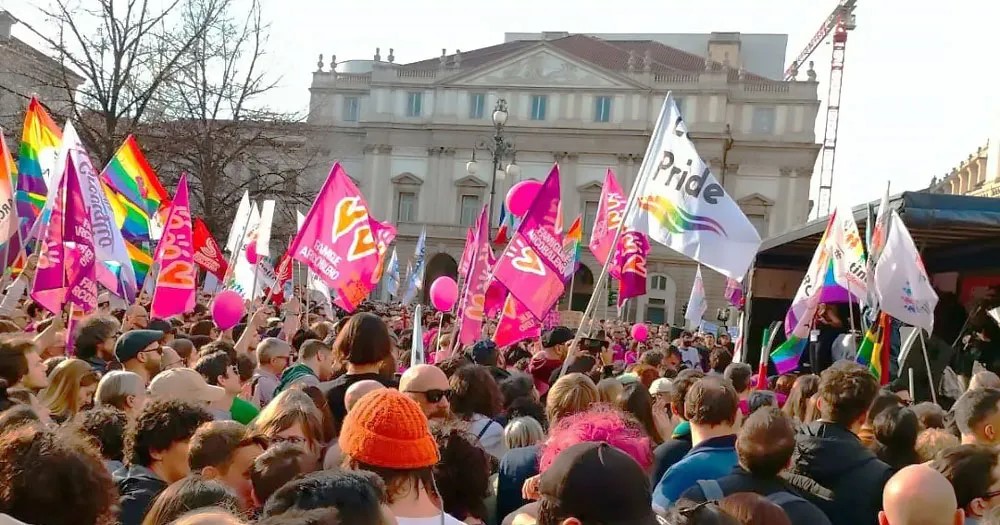
Amid legislative attacks on LGBTI rights in Italy, a new report by the Council of Europe Commissioner for Human Rights, Dunja Mijatović, calls on the Italian government to protect everyone from hate and violence
Since the new Italian government came into power in 2022, it has been toying with the rights of LGBTI people. Draft legislation that would do away with the internationally agreed protection of asylum seekers based on their sexual orientation and/or gender identity has been put forward, as well as guidelines that have led to the deregistration of lesbian mothers in several Italian cities, the drafting of a law to penalise surrogacy conducted abroad with criminal sanctions, and attempts to intimidate teachers supporting trans children in schools.
A new report by the Council of Europe Commissioner for Human Rights, Dunja Mijatović, clearly names the discontinuation of transcriptions of foreign birth certificates of children born from surrogacy or artificial reproduction technology, and the lack of protections for LGBTI people against discrimination and hatred, as human rights violations. It calls on the Italian government to step up protection of LGBTI people and their families, and to protect everyone in Italy from hate and violence.
The country report on Italy, released last week, is based on a visit the Commissioner undertook in June of this year. It addresses the topics of asylum and migration, women’s rights and gender equality, freedom of expression, safety of journalists, protection from hate crime and hate speech based on SOGIESC, and children’s rights.
Attacks on children’s rights
Addressing children’s rights, the Commissioner highlights the recent attacks against rainbow families in Italy. In January 2023, the government issued a Directive instructing local authorities to discontinue the automatic transcription of foreign birth certificates of children born through surrogacy and inviting them to register only the biological parent. A second Directive was later issued, clarifying that the these guidelines should also be followed in cases of children born following other artificial reproduction technology.
Some prosecutors began to retroactively challenge the transcription of foreign birth certificates of children born to same-sex parents. In Padua at least 33 mothers of 37 children received notification that their child(ren)’s birth certificates, in which two women’s names appeared, were illegitimate. In many cases, the deregistration comes after many years, and the children thus ‘lose’ one mother, and sometimes their family name, from one day to the other.
While the government claims that parents have a legal route to establish parentage of the second parent, namely via a special adoption procedure (“adozione in casi particolari”), LGBTI organisations have long pointed out that these procedures can take up to years, are very costly and depend on the courts, which vary from region to region.
The European Court of Human Rights clearly ruled that states need to establish a mechanism to allow for recognition of the parent–child relationship for non-genetic parents, such as through adoption, and that children should not be blamed for their parents’ decisions, including about conception. In her report, the Commissioner confirms that the Italian procedure does not comply with the best interests of the child and reminds that even Italy’s Constitutional Court recommended the legislation be amended accordingly to ensure adoption rights for all families without discrimination.
In the absence of legally ensured adoption for all, the Commissioner calls on Italy to stop deregistering parents, as some prosecutors have started to do in a response to the governmental Decree.
The attacks on rainbow families must be seen in the context of broader attacks by the government on the LGBTI community in Italy and their fundamental rights. Schools have been called upon to no longer accept the gender identity of trans children in education, the draft law proposing to withdraw the possibility to seek asylum based on prosecution based on sexual orientation and gender identity is still on the table, and LGBTI-phobic hate speech, including from politicians, has been on the rise.
Anti-LGBTI speech and hate crime
In the light of the rise in LGBTI-phobic hate and violence, the Commissioner highlights the lack of national level anti-discrimination, anti-hate speech and hate crimes legislation covering sexual orientation, gender identity, gender expression and sex characteristics (SOGIESC) grounds and calls on the Italian government to fill this legislative gap. The Commissioner highlights in particular the need to improve awareness of and response to violence against LBTI women.
The Human Rights Commissioner highlights the importance of consistent application of the legal asylum framework concerning the protection of vulnerable persons. According to us, this clearly also applies to the worrying moves of the Italian government to remove SOGI as protected grounds in the asylum law. Under EU law, Italy has several obligations to provide protection to vulnerable groups, including those based on sexual orientation and gender identity.
The Commissioner’s report is yet another voice of international institutions raising concerns about how the Italian government is failing to protect the human rights of LGBTI people and instead is more and more using LGBTI people as pawns in political games, putting them at risk of violence and discrimination. The attacks by the government are a reminder that only legal protections such as adoption rights for same-sex couples can ensure that the fundamental rights and the best interest of all children to have their parents recognised are guaranteed – legal protection that Italy is largely lacking. The lack of legal protections for LGBTI people has resulted in Italy being one of the lowest ranking EU Member States on ILGA-Europe’s Rainbow Map – placing at 22 out of 27 EU member states currently.
Together with Italian LGBTI organisations and activists, ILGA-Europe will continue to call on the Italian government to reconsider its current anti-LGBTI actions and decisions and work to advance legal protection, especially in the area of non-discrimination, family recognition and protection against hatred and violence.
Poland must ensure that same-sex couples are legally recognised, European Court rules
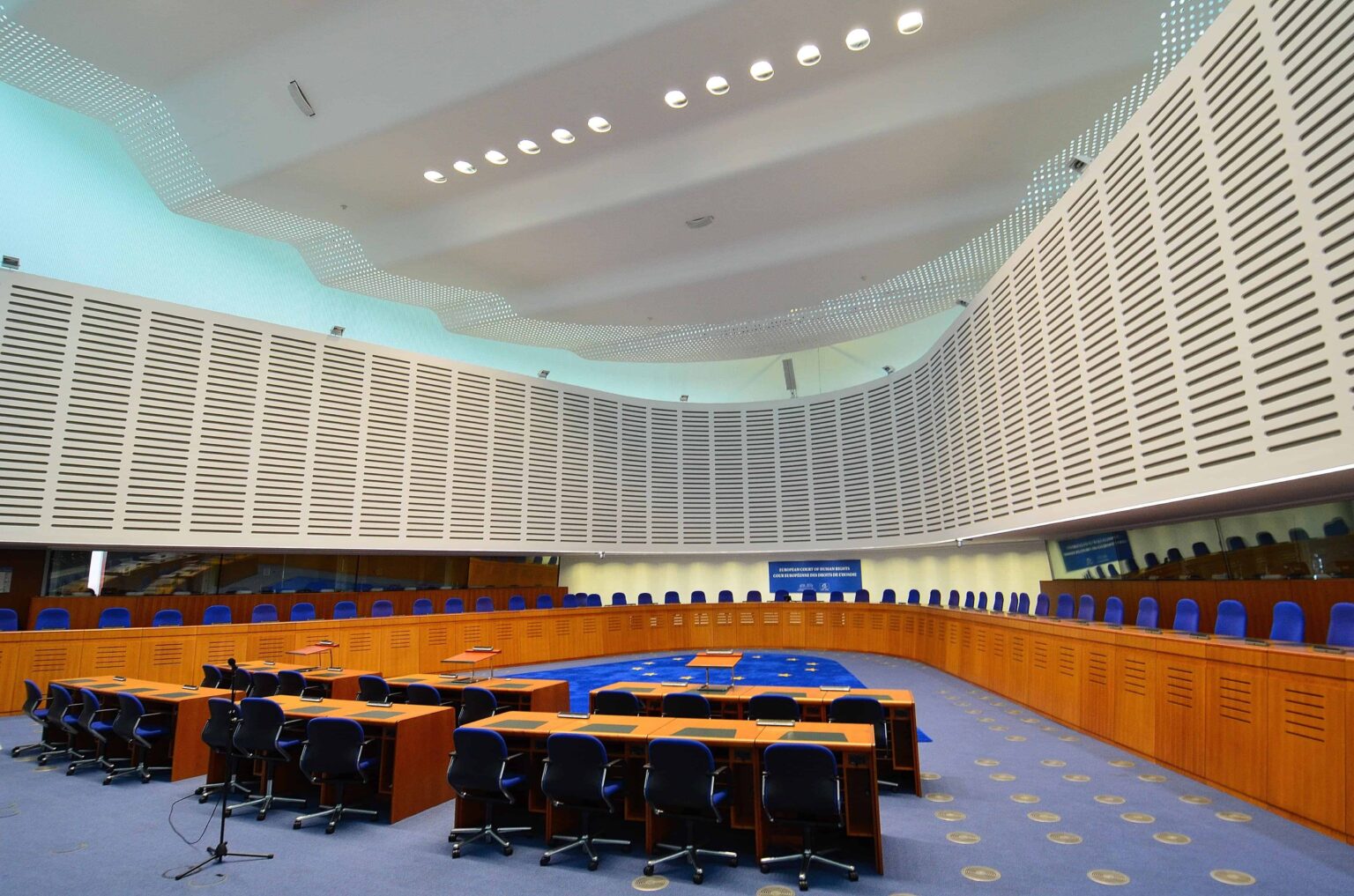
The European Court of Human Rights has issued a judgement against Poland in a case taken by five same-sex couples in the country, seeking to have their relationships legally protected.
Today, in the case of Przybyszewska and Others v. Poland, the European Court of Human Rights (ECHR) ruled that the Polish State is in violation of Article 8 (right to respect for private and family life) of the European Convention on Human Rights, having failed to comply with its duty to ensure that the applicants had a specific legal framework providing for the recognition and protection of their same-sex unions.
That failure had resulted in the applicants’ inability to regulate fundamental aspects of their lives and amounted to a breach of their right to respect for their private and family life.
The case was taken to the ECHR in 2017 and 2018 by five same-sex couples in stable relationships who live in the Polish cities of Lodz, Cracow and Warsaw.
Since marriage is the only way to formalise a relationship in Poland, the couples independently decided to marry a few years ago and approached their local civil registry offices in order to carry out the necessary formalities to get married. The authorities refused to marry them, as under Polish law marriage can only be between a man and a woman.
One of the Polish Government’s arguments was that the traditional concept of marriage as a union of a man and a woman constituted Poland’s social and legal heritage, but the Court noted that the present case did not concern same-sex marriage. Member States, it said, are able to determine the exact nature of the legal regime to be made available to same-sex couples, but have significantly less discretion when it comes down to legal recognition and protection in general.
The Court therefore concluded that the Polish legal framework could not be said to provide for the core needs of recognition and protection of same-sex couples in a stable and committed relationship. Same-sex partners are unable to regulate fundamental aspects of their life together, such as those concerning property, maintenance, taxation, and inheritance. Also, in the majority of situations, their relationship holds no weight in dealings with the judicial or administrative authorities.
The Court took note of the applicants’ and third-party interveners’ submissions indicating the increasingly hostile and homophobic attitudes towards sexual minorities displayed by high-ranking politicians from the then ruling party in Poland, including resolutions “counteracting LGBT ideology” passed by some local government bodies in Poland. Hateful statements had also apparently been made by one of the current judges of the Constitutional Court about the LGBTI community.
The case was supported by the Coalition for Civil Unions and Marriage Equality, which includes the NGO’s: Love Does Not Exclude, the Campaign Against Homophobia, the Polish Society for Anti-Discrimination Law, and the Helsinki Foundation for Human Rights.
According to coordinator for the Coalition, attorney Paweł Knut: “As of today, we start living in a new reality in which the roles have reversed. Same-sex couples no longer have to ask to be recognised in court or in an office. Thanks to the Court’s verdict, it is the state that has to start justifying why it has not yet put proper legal protection in place.”
ILGA-Europe were one of nine groups who intervened in the case. According to our Head of Litigation, Arpi Avetisyan: “Today’s judgment from the European Court is a crucial stepping stone in ensuring the rights of same-sex couples in Poland are duly recognised and protected. No more ‘if’s’ and ‘but’s’ can justify delays in putting in place a framework for legal recognition of rainbow families.”
On Monday this week, Donald Tusk secured the support of the Polish parliament to head a new government, bringing to an end eight years of right wing government under the nationalist Law and Justice (PiS) party.
Mirka Makuchowska of the Polish LGBTI NGO, Campaign Against Homophobia has called on the new prime minister to meet with NGO’s in the light of the ruling. “After eight years of humiliation, a campaign of hatred against LGBT+ people by the government and the state apparatus, a face-to-face meeting with the Prime Minister is badly needed, not least so that Polish women and men can see that there is no longer a better and worse class of citizens, only one nation that we, LGBT+ people, are a part of,” she said.
Welcoming the judgement, one of the litigant couples, Michał and Wojciech, said: “We are hopeful that we may live to see the moment when the state finally acknowledges our 20-year relationship. This is important to us for practical reasons – security in our daily lives – but also for symbolic reasons, so we can finally feel that the state treats us on an equal footing with other citizens. Of course, we hope that the ruling coalition will take the verdict seriously and quickly fulfil the promises they made during the election campaign.”
The Polish government must now report to the Council of Europe Committee of Ministers on the implementation of the judgment.
JOINT STATEMENT ON HUMAN RIGHTS VIOLATIONS IN ITALY
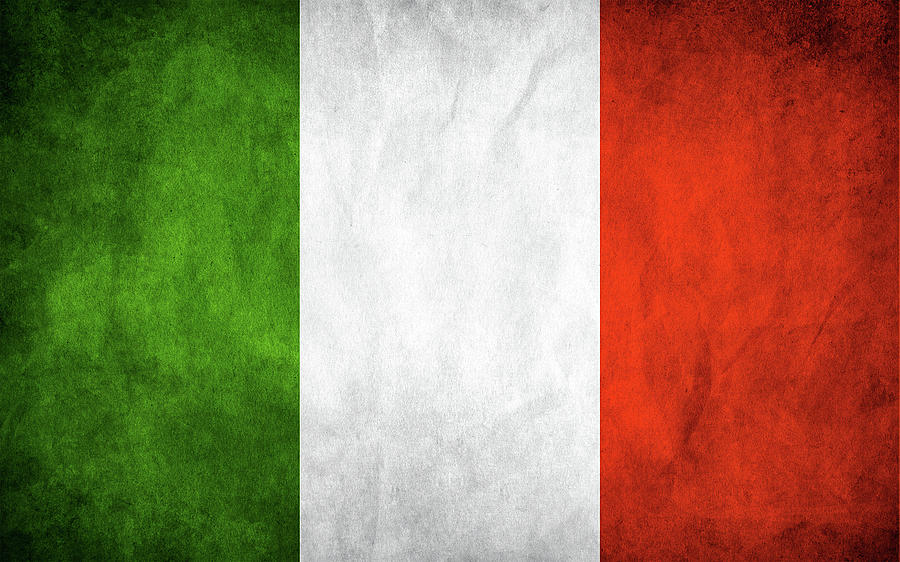
Today, November 20, we celebrate UN World Children’s Day, and feel compelled to draw attention to the recent developments in Italy where some children no longer have their parents recognised.
Earlier this year, Italy’s Minister of Interior of Meloni’s government announced that registrars should no longer register the children of same-sex couples. The government’s intimidation resulted in a series of administrative and legal attacks against LGBTIQ* families throughout the country. In Padua, at least 33 mothers of 37 children received notification that their child(ren)’s birth certificates, in which two women’s names appeared, were illegitimate. On Tuesday 14 November 2023, the first hearings possibly leading to the retroactive removal of the non-biological mothers’ names from their respective birth certificates, effectively erasing the legal motherhood of the non-biological mothers, took place before the Court of Padua. The public prosecutor’s office and the lawyer of the mothers in question, claim that removing one mother is unconstitutional.
In many cases, the deregistration comes after many years, and the children thus ‘lose’ one mother, and sometimes their family name, from one day to the other. The deregistration of a parent marks a clear breach of human rights, with significant negative impacts on the well-being and day-to-day lives of the parents and the children, and is clearly not in the best interests of the child.
These attacks are possible due to the fact that Italy lacks a national law ensuring recognition at birth or through the adoption of the children of same-sex couples. A few courageous mayors have in the past agreed to register the birth certificates of children with two mothers or transcribe the birth certificates of children with two fathers to ensure the children are not exposed to discrimination. The order to deregister one of the parents ultimately amounts to orphanage by decree, instigated by the prosecution and in line with the Meloni government’s clear stance of not recognising the parental rights of LGBTIQ* individuals.
This is a reminder that only legal protections such as adoption rights for same-sex couples can ensure that the fundamental rights and the best interest of all children to have their parents recognised are guaranteed.
These attacks on rainbow families are happening in the context of broader attacks on the LGBTIQ* community in Italy and their fundamental rights by the government. Similar to the guidelines to deregister parents, schools have been called upon to no longer accept the gender identity of trans children in education, and a draft law proposes to withdraw the possibility of seeking asylum based on prosecution based on sexual orientation and gender identity. LGBTIQ*-phobic hate speech, also from politicians, has been on the rise. The Meloni government is proposing to criminalise surrogacy arrangements made by Italian couples abroad, another move that might leave children without parents and thereby extremely vulnerable.
The European Court of Human Rights clearly ruled that states need to establish a mechanism to allow for recognition of the parent–child relationship for non-genetic parents, such as through adoption, and that children should not be blamed for their parents’ decisions, including regarding conception. Children have an undeniable right to the protection of their private and family life. World Children’s Day serves as a reminder of our collective responsibility to ensure every child’s right to a stable and loving family environment.
We condemn the recent attacks on rainbow families and urge the Italian government to reconsider the current anti-LGBTIQ* actions and decisions. All families need to be recognised and respected, without discrimination, in order to protect the best interest of the child and make sure they are not exposed to discrimination.
- NELFA – Network of European LGBTIQ* Families Associations
- Famiglie Arcobaleno, ItalyArcigay Nazionale, Italy
- ILGA-Europe
- EL*C – Eurocentralasian Lesbian* Community
- Društvo kulturno, informacijsko in svetovalno središče
- Legebitra, Slovenia
- Familles-arc-en-ciel/Regenbogenfamilien/famiglie_arcobaleno/famiglias_a’artg, Switzerland
- Sateenkaariperheet ry / Rainbow Families Association Finland
- ILGA World
Romania failed to protect same-sex couples, European court rules

European court has found that Romania breached the right to respect for the family life of 21 same-sex Romanian couples by failing to recognise their relationships.
In a ruling released today, the European Court of Human Rights (ECHR) found that Romania violated Article 8 (right to respect for private and family right) of the European Convention on Human Rights.
21 same-sex couples lodged over two dozen complaints to the ECHR between 2019 and 2020 arguing that, because Romania does not recognise any type of same-sex union, it was impossible for them to legally safeguard their relationships. The couples, born between 1967 and 1996, were all of Romanian nationality and currently live in various parts of the country.
The couples turned to the European court since local authorities had refused their demands. After living together for different lengths of time, the couples gave notice to the local registry offices of their intention to marry. All requests were rejected because according to the Romanian Civil code “marriage is concluded between a man and a woman” and same-sex marriage is prohibited.
In its ruling, the ECHR reiterated that Council of Europe member states are required to provide a legal framework that protects and recognises same-sex relationships. It also referred to a previous judgment Fedotova and Others v. Russia and remarked that states have some discretion on the form of recognition.
The court concluded its decision by noting that “none of the arguments put forward by the [Romanian] Government to justify the restriction on legal unions to heterosexual marriage could outweigh the applicants’ interest in having their relationships recognised.”
The 21 couples had declared that they were unable to access numerous rights available for married couples such as protections in property or inheritance, and other obstacles all same-sex couples in Romania face. ILGA-Europe provided third-party submissions jointly with FIDH, NELFA and ECSOL.
This May, Romania, ranked 41st on ILGA-Europe’s annual Rainbow Map and Index. Close to its fifth anniversary, Romania has not yet implemented the landmark judgment issued by the CJEU recognising the freedom of movement of same-sex spouses in the EU.
For good and bad: The trending impacts on LGBTI human rights in Europe and Central Asia

The most striking finding of ILGA-Europe’s Annual Review 2023 is a stark rise in the ferocity of anti-LGBTI hate and violence reported in Europe and Central Asia. But alongside this worrying trend, there are positive developments in areas such as legal gender recognition, public support, intersex human rights and civil society. Here are the key highlights.
At ILGA-Europe we’ve just published our Annual Review, showcasing the main developments and trends in the human rights Situation for LGBTI people in Europe and Central Asia. Disturbingly, the most striking finding this year is the levels of hate reported in the region. 12 years into this yearly reporting, the present edition finds that anti-LGBTI violence in 2022 was more targeted and extreme than ever in the history of our reporting.
Our Annual Review aims to paint a clear picture of the reality from the ground for our communities. It documents individual cases and events, as well as legislative, social and political advancements and regressions, and new available data. All reporting is based on the work of LGBTI activists in each country featured in these pages, as well as on our own work.
While the review points to the devastating consequences of the instrumentalisation of LGBTI people, mostly for political gain, there have been other developments in the direction of human rights and protection of LGBTI people.
We have not seen this severity of the violence before
For years, ILGA-Europe has been documenting the rise in hate while activists across the region have shown how anti-LGBTI speech, both online and by political and religious leaders, translates into violence harming people.
This phenomenon is across the board in this year’s Annual Review. For example, in France, the Ministry of Interior reported a 28% rise in hate crimes between 2020 and 2021. In Switzerland, LGBTI organisations reported a 50% increase between 2020 and 2021. Spain reported a 68% increase in 2021, while in England and Wales transphobic incidents rose by 56%.
There are also more reports than ever before of LGBTI people taking their lives, a clear sign how discrimination, hate speech and harassment are impacting mental health. In Italy, three trans women took their lives. Two of them were teenagers, the third woman was a teacher, who was suspended from school because she had socially transitioned. In Armenia, a young gay couple committed suicide after suffering harassment when a photo of them kissing went viral. These are just a few examples.
Sexual education is increasingly compromised
Education is a growing battleground in the resistance to LGBTI people and rights. In Hungary, as result of law banning LGBT content, teachers reported a fear of bringing sexual orientation, gender identity and other topics to the classrooms. In the Netherlands, 36 orthodox schools require anti-LGBTI declarations from pupils and parents, and the new Italian Prime Minister, Giorgia Meloni has publicly advocated for a ban on sex education in schools and the exclusion of LGBT people in children’s books.
Russia expanded its ‘propaganda law’ to prohibit positive and neutral information about LGBT people and “gender reassignment” to minors and adults. There was an alarming number of ‘propaganda’ charges or threats in educational establishments in the country. All in all, progression on sexual education is being challenged.
Public support for LGBTI people is growing
In parallel, the report finds growing support among societies for LGBTI people, also in countries where we might not expect it. For example, most Hungarians don’t consider ‘homosexual propaganda’ an important issue. In Poland, two thirds of the population support marriage equality and 60% support the abolition of anti-LGBT resolutions in the country.
What’s more, many politicians across Europe have shown their support throughout 2022. Many reacted with horror to the killings in Oslo and Bratislava and the European Parliament has publicly condemned the violations of LGBTI rights. We need more governments standing strong against hate in the media and online and more progress in advancing laws against hate crimes that protect LGBTI people.
There are more legal gender recognition laws that include self-determination
In the face of enormous backlash on trans people, and a number of forces trying to stop legal gender recognition (LGR), some countries made progress in 2022 and others showed a will to ensure a model of LGR based on self-determination.
Scotland, Finland and Spain were the best examples; by adopting LGR laws that include self-determination, these countries are showing a clear way forward for other governments.
Same-sex partnership is back on the agenda
After stagnating for a number of years, same-sex partnership recognition is on the rise again. Andorra adopted legislation to ensure heterosexual marriage and the recognition of same-sex civil partnerships guarantee the same set of rights. In Latvia, following a Supreme court decision ruling that same-sex couples should be given civil status, same-sex couples were recognised in court cases. Slovenia and Switzerland adopted marriage equality, including positive changes regarding adoption rights. Other countries took steps forward the adoption of laws that recognise same-sex partnerships.
While intersex human rights are rightfully taking a space in the agenda
There is also a growing awareness of intersex human rights across Europe. While Greece adopted a ban on non-vital medical interventions on children, the European Commission conducted surveys and interviews for the first EU study on the lives of intersex people and their parents (expected to be published this summer). The Council of Europe is preparing a Recommendation on intersex human rights while the Chair of European Commission against Racism and Intolerance and PACE General Rapporteur for the rights of LGBTI people shared supportive statements.
Behind every positive development, there are LGBTI activists doing hard work
LGBTI organisations and activists across our region are key to all the advances on LGBTI people’s rights and the support to their communities during 2022.
Despite difficult circumstances, more and more Prides are being organised, support for the most vulnerable in the community is provided and work with institutions and policy makers continues advancing LGBTI people rights.
More and more organisations report covering for gaps in service provision, and providing services where the community does not feel safe to access mainstreaming services, for example when it comes to shelter.
The most remarkable support was that of the LGBTI community in Ukraine through LGBTI organisations, as well as the support by activists across Europe for Ukrainian LGBTI refugees.
LGBTI activists are the central players in countries where progress has been made, as we’ve seen in Spain and Finland, where huge effort went into successfully keeping self-determined legal gender recognition on the right political track, despite fierce opposition.
The Annual Review of the Human Rights Situation of LGBTI People in Europe and Central Asia is published every February, as part of our Rainbow Europe package. We thank all those across 54 countries who worked with us to make sure our reporting was accurate.
Find out what’s been happening in your country here.
Bulgaria’s Supreme Court Rejects Baby Sara’s Bulgarian Citizenship

The application for a Bulgarian birth certificate for a child of two mothers, one of whom is a Bulgarian citizen, has been rejected by the country’s Supreme Administrative Court, despite an opposite ruling from the court of justice of the European union.
Arguing that Baby Sara is not a Bulgarian citizen, the country’s Supreme Administrative Court (SAC) said that their decision not to grant a birth certificate to the child of two mothers is final and cannot be appealed.
The case ‘Stolichna obshtina, rayon Pancharevo’ arose at the Court of Justice of the European Union (CJEU) when a same-sex couple were refused a birth certificate in Bulgaria for their infant daughter, who was born in Spain. The Bulgarian authorities asserted that the couple, one of whom is Bulgarian, could not be registered as parents on the child’s birth certificate, leaving the family in legal limbo, and Baby Sara stateless.
In December 2021, the CJEU ruled that it is contrary to the fundamental rights guaranteed by Articles 7 and 24 of the Charter for Baby Sara to be deprived of the relationship with one of her parents when exercising her right of free movement or for her exercise of that right to be made impossible or excessively difficult on the ground that her parents are of the same sex.
The ruling effectively said that if one EU country recognises a child’s parental relationship, then all EU countries should do the same to guarantee the child its freedom of movement across the region, a right enjoyed by all EU citizens.
After the CJEU judgment, the Bulgarian authorities were obliged to recognise baby Sara. In May, a District Court (SES) in the country ordered city hall authorities in the capital city of Sofia to issue a birth certificate to Baby Sara.
However, the SAC overturned this decision, and refused to recognise the child’s Bulgarian citizenship.
Describing the judgement as a “blow” to Bulgaria’s LGBTI community, the organisation Deystvie, who litigated with Baby Sara’s parents, said it “will not stop us”.
“Our struggle is just beginning, and we know we are right. The EU’s court is with us, and this was confirmed by the SES’s decision last May.”
European Court rules against Lithuania labelling LGBTI-inclusive fairytale book harmful to children
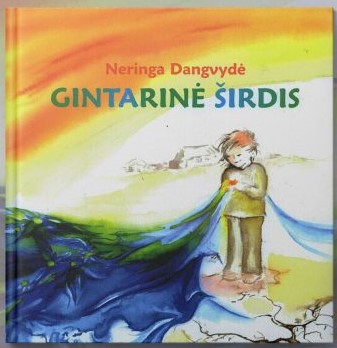
Today, the European Court of Human Rights found a violation of Article 10 (freedom of expression) on the account that labelling a book of fairy tales as harmful to children solely because of LGBTI content breached the European Convention.
Published in 2013 by the Lithuanian University of Educational Sciences and written by the late lesbian writer, Neringa Dangvyde Macate, the book was entitled ‘Amber Heart’ (‘Gintarinė širdis’), and contained fairy tales aimed at nine-ten-year olds, with partial funding from the Ministry of Culture. Adapted from traditional fairy tales, ‘Amber Heart’ included characters from different ethnic groups or with intellectual disabilities and addressed issues such as stigmatisation, bullying, divorced families and emigration. Two of the six fairy tales in the book had story lines about relationships and marriages between persons of the same sex.
On the book’s publication, eight members of the Lithuanian Parliament sent a letter to the University, relaying to it concerns expressed by associations representing families about literature which “sought to instil in children the idea that marriage between persons of the same sex was a welcome phenomenon”.
The Inspectorate concluded that the two fairy tales which depicted same-sex couples did not comply with a provision in Lithuania’s ‘Minors Protection Act’, stating that any information which “expresses contempt for family values” or “encourages a different concept of marriage and creation of family than the one enshrined in the Constitution or the Civil Code” is considered as having a negative effect on minors. The Inspectorate recommended that the book be labelled with a warning that it might be harmful to children under 14 years of age.
The University’s publishing house suspended distribution of the book in March 2014. A year later distribution was resumed, with the book bearing a warning label, in line with the Inspectorate’s recommendation.
Macate lodged civil proceedings against the University, arguing that depiction of same-sex relationships could not be considered harmful for children of any age, but in 2019 the courts ultimately endorsed the measures taken against the book and dismissed her claim. In particular, the Vilnius Regional Court found that certain passages were too sexually explicit and that the way in which the fairy tales depicted a new family model raised the question of whether the applicant herself had sought to discriminate against those who held values different from her own.
In 2020, Neringa Dangvyde Macate passed away and her mother continued proceedings on her behalf, taking the case to the European Court. ILGA-Europe had intervened in this case jointly with Article 19 and Professor David Kaye (former UN Special Rapporteur on Freedom of Expression). Read more about our intervention here.
In today’s Grand Chamber judgment, the European Court held, unanimously, that there had been: a violation of Article 10 (freedom of expression) of the European Convention on Human Rights. The Court found that the measures against the applicant’s book had intended to limit children’s access to information depicting same-sex relationships as essentially equivalent to different-sex relationships.
In particular, it could not see how, according to the national courts and the Government, certain passages – a princess and a shoemaker’s daughter sleeping in one another’s arms after their wedding – had been sexually explicit. Nor was it convinced by the Government’s argument that the book had promoted same-sex families over others. To the contrary, the fairy tales had advocated respect for and acceptance of all members of society in a fundamental aspect of their lives, namely a committed relationship.
As a result, it concluded that restricting children’s access to such information had not pursued any aims that it could accept as legitimate.
Welcoming the judgement, ILGA-Europe’s Head of Litigation, Arpi Avetisyan said, “The Court’s message is clear: Protection of children cannot be used as an excuse for censoring information about LGBTI rights, both on the part of the authors for promoting diversity and equality, and for children to learn about acceptance of all members of the society on an equal footing.
“This case also sends another important message, which is that all families are equal. In the Court’s own words: Promoting one type of family at the expense of another is never acceptable under the [European] Convention.”
The Court ordered Lithuania to pay 17,000 Euro to cover non-pecuniary damages and litigation costs. The funds are to be paid to the author’s mother.
LGBTI organisations welcome EU parental recognition proposal with the best interests of the child at its core

EU-wide parenthood recognition is key in ensuring equal protection for all children in the Union, say ILGA-Europe and NELFA.
Today, the European Commission published a proposal for a Council Regulation on recognition of parenthood, which sets out the full recognition of parenthood for cross-border movement within the EU, while ensuring every child’s fundamental rights are fully protected everywhere in the EU.
According to Europe’s LGBTI umbrella organisation, ILGA-Europe, and the Network of European LGBTIQ* Families (NELFA), this is a major step forward for bringing legal security for children in cross-border situations to have their family life protected and having both their parents recognised across the EU. Currently, many children, including children of LGBTI parents, ‘lose one parent’ when crossing a border because of parenthood not being recognised.
The Council Regulation builds on recent rulings of the Court of Justice of the European Union (CJEU), particularly the one delivered in the case of Baby Sara in Bulgaria (V.М.А. v Stolichna obshtina), requiring EU member states to recognise a parent-child relationship for the purposes of permitting a child to exercise without impediment, with each parent, the right to move and reside freely within the territory of all the member states, as guaranteed in Article 21(1) Treaty on the Functioning of the European Union (TFEU).
The current lack of recognition of parental ties in cross-border situations means that a parent in one country is not always a parent in another country. Moving from one EU member state to another, for holidays or residence, children might ‘lose’ a parent and in very serious cases, such as the Baby Sara case, have ended up being stateless. This lack of parental recognition can have very serious negative consequences for children in rainbow families, such as depriving them of their succession, or their right to have any one of their parents act as their legal representative in matters such as medical treatments, childcare and education.
In line with international human rights law, the proposal puts the best interests of the child at the core, to ensure that children’s right to identity, nationality, non-discrimination and succession and maintenance rights are protected across the EU. This is a major step forward, which LGBTI rights organisations, including ILGA-Europe and NELFA, have consistently lobbied for until now. In doing so, the regulation addresses broader family issues, and thus does not interfere with the substantive law on family matters which falls within the competence of member states.
According to Executive Director of ILGA-Europe, Evelyne Paradis: “Ensuring that children have their parents fully recognised when moving across the EU is an essential condition for their best interests and their fundamental rights. This proposed law is doing so, without impeding on the competence of member states to define a family and establish parenthood under their jurisprudence.
“Currently, rainbow and other families often face a burden to establish filiation through court systems and the legal costs that entail. Having legal certainty on recognition will reduce serious concerns and problems that rainbow families face when travelling or moving in the EU.”
President of NELFA, Eleni Maravelia, says: “Rainbow Families in Europe are very pleased with the legislative proposal by the European Commission, because it would strengthen the rights of children in cross-border situations, as guaranteed by the Treaties. In particular, the new law can help to avoid longer periods of statelessness and other serious legal limbo effects for minors – including the loss of essential familial ties, social benefits and parental obligations. Unfortunately, many children still experience such difficulties in the European Union in various shapes and shades. It’s time for a change. Every child needs full recognition and protection, regardless of their living environment.”
ILGA-Europe and NELFA will now work with MEPs and EU governments to ensure that the proposal is supported through the European Parliament and Council, and that the aim of the proposal is maintained in the final legislation.
ILGA-Europe also welcome today’s publication of a proposal to set binding minimum standards for Equality Bodies by the European Commission. The proposal would strengthen the independence, powers and resources of equality bodies in EU Member States. However, we regret that the European Commission is not proactively seeking ways to include the protection of trans and intersex people in the proposal. Working with Equinet and their membership, ILGA-Europe has seen a lot of interest in widening protection to fully include trans, intersex and non-binary people, and many countries across Europe have started to include gender identity and sex characteristics in their list of protected grounds.
Says Evelyne Paradis: “While we recognise the limitations of the EU treaty, the EC should, in line with EU case law and international human rights standards, encourage member states to not exclude large parts of the LGBTI community from their anti-discrimination protection.”
For further comment, contact: Ana Muñoz Padrós, ILGA-Europe: ana@ilga-europe.org
Update: The Rights of Rainbow Families in the EU

The Court of Justice of the EU has ruled in two occasions over recent months that EU countries must protect the freedom of movement of rainbow families. This is a right all EU citizens should enjoy, LGBTI people too. In today’s blog, we bring you the state of LGBTI people’s family rights in different EU countries.
Baby Sara and Baby Sofia are too little yet to understand the change they’ve brought about for rainbow families in the EU. They don’t know that they share similar experiences. Both were born in Spain to lesbian couples and both were at risk of statelessness during the first years of their lives.
For quite some time, Sofia, daughter of Irish and Polish mothers, and Sara, daughter of British and Bulgarian mothers, did not have access to identity documents and couldn’t leave Spain. One of the reasons was that the countries of one of their mothers, Bulgaria in the case of Sara, and Poland in Sofia’s, refused to recognise the birth certificate issued in Spain because the parents in the documents were two persons of the same sex. After the Court of Justice of the EU rulings on their cases, both Sara and Sofia have helped to further the protection of rainbow families’ rights in the European Union.
First it was Baby Sara. At the end of 2021, the CJEU issued a landmark judgment in her case, stating that if one EU country recognises the child’s parental relationship, as Spain had done, then all EU countries should do the same, and so guarantee the child its freedom of movement across the region, which is a right of all EU citizens. The court decreed that Bulgarian authorities must issue an identity card or a passport to baby Sara, and that all other EU countries should recognise and follow this ruling.
In June 2022, the CJEU confirmed this in the reasoned order in the case of Baby Sofia’s, stating something very similar: when an EU country has recognised two persons of the same sex as parents of a child, then the EU country of which that child is a national, should issue identity documents to that child with both parents on them, and all EU countries should protect the right to freedom of movement of the child and their family. Poland has been told that it must now provide the child with identity documents and guarantee her and her parents the right to move and reside freely in the country.
These are protections granted in Articles 20 and 21 of the Treaty on the Functioning of the European Union (TFEU) and Articles 7 and 24 of the Charter of Fundamental Rights of the EU, among others.
The cases of Baby Sara and Baby Sofia have strengthened the freedom of movement of LGBTI families across the EU as citizens of the Union, which does not necessarily translate into changes in national legislation Union. The family rights of LGBTI people vary significantly across the Union.
Have a look at the family rights of LGBTI people in the EU:
13 countries recognise marriage equality and joint adoption for same-sex couples.
They are: Austria, Belgium, Denmark, Finland, France, Germany, Ireland, Luxembourg, Malta, Netherlands, Portugal, Spain and Sweden.
Bonus: Some weeks ago, Slovenia’s Constitutional Court ruled that marriage is a life union of two persons, paving the way for same-sex marriage and adoption. The Court gave the Slovenian Parliament six months to comply with this decision.
In 13 countries registered partnership with similar rights to marriage is possible for same-sex couples
They are: Austria, Croatia, Cyprus, Greece, Hungary, Ireland, Italy, Luxembourg, Malta, Netherlands, Portugal, Slovenia and Spain in some regions.
Additionally, in seven countries same-sex couples have access to registered partnership with limited rights.
In 11 countries, medically assisted insemination is available for same-sex couples and singles
They are: Belgium, Denmark, Finland, France, Ireland, Luxembourg, Malta, Netherlands, Portugal, Spain and Sweden.
In Austria, only couples have access and in Latvia, only singles.
Only 4 countries of the EU, Belgium, Malta, Slovenia and Sweden, recognise trans parenthood.
Rainbow families have the right to move and reside freely, EU court reiterates

The Court of Justice of the EU has stated that birth certificates issued in an EU country must be recognised across the EU, and that EU countries should protect the freedom of movement of rainbow families.
On June 24, the Court of Justice of the European Union (CJEU) issued a reasoned order establishing that when an EU country has recognised two persons of the same sex as parents of a child, then the EU country of which that child is a national, should issue identity documents to that child with both parent on them, and all EU countries should protect the right to freedom of movement of the child and their family. This is a confirmation of a previous landmark judgment, that of Baby Sara.
Poland has been told that it must now provide the child known as Baby Sofia, born in 2018 to Irish and Polish mothers, with identity documents and guarantee her and her parents the right to move and reside freely in the country.
The case arose when Poland denied citizenship to baby Sofia, daughter of two mothers, Kashka, from Poland, and Sinéad, from Ireland. In 2018, Sofia was born in Spain, where the couple had gone to receive IVF treatment. Spanish authorities issued a birth certificate with the name of the two mothers but not identity documents, as children of foreigners are not automatically entitled to citizenship in the country.
At that time, in Ireland, two women could not be recognised as parents on a birth certificate. In the eyes of Irish law, the mother was the woman who gave birth to the child. As Kasha, the biological mother was not Irish, Sofia couldn’t apply for citizenship in Ireland either.
In Poland, where rainbow families are still not recognised, authorities refused to recognise Sofia’s birth certificate, depriving her of access to citizenship and identity documents. For over two years Sofia remained without any documentary proof of any nationality, and therefore at risk of statelessness. The family was could not leave Spain, as Baby Sofia couldn’t travel without documents. Her mothers had to move house every couple of months, as they were running out of savings.
Now, the CJEU has stated that an EU country is obliged to provide identity documents to a child when the child, being a national of the country, has a birth certificate issued in another member state that designates two persons of the same-sex as their parents. All EU countries must respect the documents that allow the child and their family to exercise their right to move and reside freely with the territory of the EU. These are protections granted in Articles 20 and 21 of the Treaty on the Functioning of the European Union (TFEU) and Articles 7 and 24 of the Charter of Fundamental Rights of the EU, among others.
With this reasoned order, the CJEU has confirmed the landmark judgment delivered in the Baby Sara case last year, which arose when a same-sex couple were refused a birth certificate in Bulgaria for their daughter, also born in Spain. Poland must now provide Baby Sofia with identity documents and guarantee her and her mothers the right to move and reside freely in the country.
In the meantime, Spain issued identity documents to Sofia in March 2019. Spanish law foresees a safeguard measure that allows children born in its territory who would otherwise be stateless to acquire Spanish nationality at birth. The couple also applied for Irish citizenship for Sofia through naturalisation over two years ago, but they have not received any feedback since March 2020. The Children and Families Relationship Act, which allowed both women in a same-sex couple to be automatically recognised on their child’s birth certificate, was enforced in Ireland in May 2020.
Welcoming the order, but concerned about its implementation, the lawyer for Baby Sofia’s parents, Anna Mazurczak said: “We are, of course, happy that the Court has applied the reasoning from the Bulgarian case in a Polish case. However, the Court has not been as straightforward as we had hoped. We wanted to make sure that Poland had the obligation not only to issue an ID but also to indicate the first names of same-sex parents on it.
“Through the CJEU’s reasoned order, we hoped to convince the Supreme Administrative Court of Poland that issuing an ID with one mother’s name is not enough. The CJEU has already held that different last names contained in documents issued by different member states can cause an obstacle to the right of freedom of movement. In my opinion, the different parent names on the ID card can violate freedom of movement even more.”
Recently, a draft amendment to the Family Code was submitted for public consultation in Poland, where marriage equality, same-sex registered partnerships and co-parent recognition are not recognised. While it could improve the situation of children of same-sex parents born abroad by recognising their birth certificates, it also presents a discriminatory approach towards rainbow families. There is no clear timeline for the development and implementation of these amendments.
According Arpi Avetisyan, Head of Litigation at ILGA-Europe: “The CJEU’s reasoned order is a welcome confirmation of the rights of children in rainbow families. The Polish and Bulgarian cases that have reached the CJEU, Baby Sofia and Baby Sara, are not isolated. They show the tip of the iceberg of the numerous examples of the hardships experienced by rainbow families in the EU.
“We hope that the upcoming European Commission’s legislation on parenthood recognition, by incorporating the CJEU rulings, will provide a framework for removing obstacles to freedom of movement for rainbow families. What is crucial at the present, however, is that Poland and Bulgaria put in place necessary procedures for implementing CJEU’s judgment and reasoned order as soon as possible.”
Meanwhile, in Bulgaria, the ruling in Baby Sara’s case has not yet been implemented. While on 16 May, Sofia’s Administrative Court, which had asked the CJEU for clarification in this case, ruled that Capital Municipality, Pancharevo District must issue a birth certificate with both of Sara’s mothers on it, the decision was appealed by the Municipality on 13 June. This means that to date, Sara is still without documents and at risk of statelessness.
Complaint Filed with EC Against Lack of Free Movement for Same-sex Couples in Hungary

ILGA-Europe, alongside a Hungarian activist organisation, have filed a complaint against Hungary because of its refusal to implement the 2018 Coman judgement, which recognises that the term “spouse” includes same-sex spouses under EU freedom of movement laws.
Just ahead of the fourth anniversary of the ground-breaking 2018 Court of Justice of the European Union (CJEU) judgement giving freedom of movement to same-sex couples in the EU (Coman vs. The Romanian State), ILGA-Europe, alongside Hungarian LGBTI organisation, Háttér Society and supported by the law firm White and Case, have filed a complaint with the European Commission because of Hungary’s non-compliance with the judgement.
With a complaint already pending on Romania because it has not implemented the 2018 ruling, and is thus disrespecting EU law, proof has also been provided that Hungary also continues to ignore the judgement and is prohibiting freedom of movement for same-sex couples.
The Hungarian state body in charge of granting recognition to foreign marriages and foreign partnerships refuses to recognise same-sex marriages legally concluded in jurisdictions of other EU Member States, as obliged by the 2018 Coman ruling, thus impeding freedom of movement within the EU and breaching EU law.
The refusal of the Hungarian State to comply with the Coman judgment is illustrated in a recent opinion issued by the Hungarian Ministry of Justice, which, in essence, states that the validity of a foreign marriage should be assessed under the country’s International Private Law Act (IPLA). Under the IPLA, a foreign marriage shall only be valid if the legislative conditions in the countries of both spouses country laws are satisfied, in other words the laws of the States of which the spouse is a national. According to sec. 12(1) of the IPLA, however, foreign law is not applied if the result of its application would violate fundamental values and constitutional principles.
Following the standpoint adopted by the Ministry of Justice, the Hungarian authorities deprive the following same-sex couples of marriage recognition (and thus freedom of movement):
- A same-sex marriage legally concluded abroad (including in other EU jurisdictions) with a Hungarian national. The Hungarian authorities do not allow for a recognition of a same-sex marriage with Hungarian nationals since Hungarian law does not provide for same-sex marriage.
- A same-sex marriage legally concluded abroad (including in other EU jurisdictions) where both of the spouses personal laws allow for same-sex marriage. The Hungarian authorities do not allow for recognition of same-sex marriage, because they consider it contrary to Hungarian public policy, and in alleged violation of the fundamental values and constitutional principles of the Hungarian legal system.
Active Steps To Make Life for Same-sex Couples More Difficult
In addition, requests for recognition of foreign same-sex marriages have not merely been denied, the Hungarian State has also taken active steps to make the lives of same-sex couples even more difficult than they were at the time the Coman ruling was delivered.
Since 2019, third-country nationals (non-Hungarian, non-EU) cohabiting with a Hungarian citizen, whether formally registered with public notaries as cohabiting partners or not, are no longer considered as their “family member,” thereby denying them basic immigration rights. This additional hurdle has worsened the conditions of same-sex couples in Hungary. Whereas the recognition of same-sex marriages has always been denied, third-country nationals living with a Hungarian citizen outside of a registered partnership will now also be denied the right to reside permanently in Hungary.
This situation is in clear violation of EU law and the 2018 Coman ruling of, as well as Art. 21(1) and Art 4(3) of the Treaty on the Functioning of the European Union (TFEU) and the Directive 2004/38/EC on the right of citizens of the Union and their family members to move and stay in the territory of the Member States.
The landmark Coman ruling was adopted four years ago, recognising that the term “spouse” includes same-sex spouses under EU freedom of movement laws. The ruling was supposed to provide same-sex spouses with much-awaited freedom of movement and long-overdue equal treatment throughout the EU. However, on its fourth anniversary, not only has Mr Hamilton, the spouse of Mr Coman, still not been granted residency in Romania, but legislation in both Hungary and Romania continues to violate the right to freedom of movement for same-sex couples.
The CJEU explicitly held that the refusal to recognise the same-sex marriage of an EU citizen, which constitutes a restriction of their right to move and reside freely within the EU under Art. 21(1) TFEU (Coman, § 40), cannot be justified on public policy and national identity grounds (Coman, §§ 41-50). Numerous administrative procedures have been pursued in Hungary, notably by Háttér Society. Háttér assist same–sex couples to apply for domestic registration of their same–sex marriage concluded outside Hungary, either as marriage or as a registered partnership, in order to obtain a right of residence. Such applications have, to date, always been rejected.
According to Katrin Hugendubel, Advocacy Director with ILGA-Europe, “We urge the Commission to investigate the complaints filed regarding Hungary and Romania, and to take all steps at its disposal, to ensure that Hungary, Romania, and indeed all Member States, respect the Coman ruling at the Court of Justice of the European Union. In essence, the ruling states that all EU member states are obliged to recognise legally concluded same-sex marriages in other member states, whenever this is necessary to secure the freedom of movement of the same-sex spouse.”
Bulgarian Court Rules Baby Sara Must Be Issued Birth Certificate
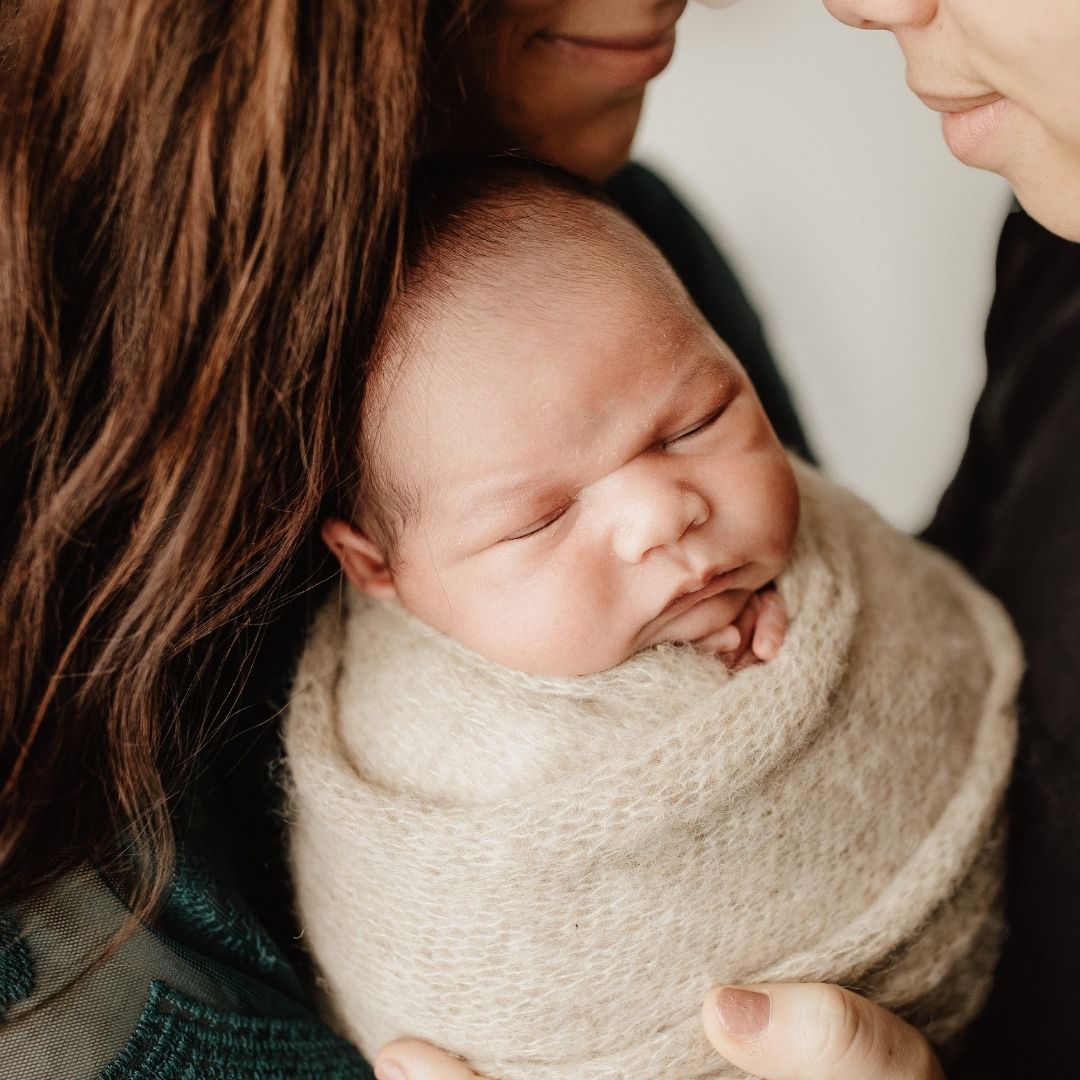
A Bulgarian court has ordered city hall authorities in the capital city of Sofia to issue a birth certificate to the baby born to a same-sex couple from Bulgaria and Gibraltar, known as ‘Baby Sara’.
The court’s decision was declared on Monday (16 May) follows a ruling last December by the Court of Justice of the European Union (CJEU), saying that if one EU member state recognises a parental relationship between a child and its parents, then all member states should, in order to give the child it’s right to freedom of movement.
The case ‘Stolichna obshtina, rayon Pancharevo’ arose when a same-sex couple were refused a birth certificate in Bulgaria for their infant daughter, who was born in Spain. The Bulgarian authorities asserted that the couple, one of whom is Bulgarian, could not be registered as parents on the child’s birth certificate, leaving the family in legal limbo, and Baby Sara stateless.
The CJEU ruled that it is contrary to the fundamental rights guaranteed by Articles 7 and 24 of the Charter for the child to be deprived of the relationship with one of her parents when exercising her right of free movement or for her exercise of that right to be made impossible or excessively difficult on the ground that her parents are of the same sex.
The ruling asserted that the Bulgarian authorities are obliged to issue an identity card or a passport to Baby Sara, which all other EU Member States are obliged to recognise.
Welcoming the Bulgarian court ruling that Baby Sara must be issued her birth certificate in light of the CJEU judgement, Arpi Avetisyan, Head of Litigation at ILGA-Europe, which provided strategic legal support during the proceedings before the CJEU, said: “The decision from Sofia Administrative Court sets a model example for applying the CJEU’s judgment in Baby Sara’s case. The Court acted swiftly and with clarity. All eyes are now on the Bulgarian authorities to comply with the Sofia Administrative Court decision and issue the birth certificate promptly. At ILGA-Europe, we couldn’t be happier for Baby Sara and her parents to finally be able to be recognised and travel as a family. All rainbow families across the EU should be able to enjoy their right to freedom of movement, without fragmentation and discrimination.”
The decision of the Bulgarian court comes almost on the fourth anniversary of another landmark CJEU decision in favour of freedom of movement for rainbow families, the Coman judgement against Romania, which has yet to be implemented by Romanian authorities.
On 5 June 2018, the CJEU ruled that the term spouse includes same-sex spouses under EU freedom of movement laws. Four years on, Clai Hamilton, spouse of Romanian citizen Adrian Coman, has not been granted residency yet in Romania.
According to Avetisyan, “It is very disappointing that four years on we are still talking about implementation of Coman judgment – both in relation to the applicants themselves, but also for other couples in Romania who continue suffering as a result of authorities’ unwillingness to make the necessary changes. This judgment was a big achievement for establishing equal rights for all EU citizens to enjoy their freedom of movement, without discrimination based on sexual orientation.
“We trust the European Commission will act firmly to ensure that EU law is implemented, in Romania and other Members States all across the EU, and make sure rainbow families are treated equally and with dignity.”
How Baby Sara and her mums have pushed forward the rights of all rainbow families across the EU

When an EU country recognises a child and its same-sex parents as a family, all EU countries should recognise them as such, so to guarantee their freedom of movement. This is what the EU’s top court ruled in December. But how this case has advanced LGBTI rights in the European Union and what comes next for rainbow families?
At the end of 2021, the Court of Justice of the European Union (CJEU) ruled that if one EU country recognises the child’s parental relationship, then all EU countries should do the same to guarantee the child its freedom of movement across the region, a right of all EU citizens.
The ‘Baby Sara’ case, as it has become known, will have a long-term impact on rainbow families in the EU. Born in Spain to a lesbian couple, baby Sara was denied citizenship there because neither of her Bulgarian and Gibraltarian mothers are of Spanish descendent. Under the British Nationality Act, Gibraltar-born parents cannot transfer UK citizenship.
So, Bulgaria was the one reasonable option left for the family. But same-sex unions are not recognised in Bulgaria and two persons of the same sex cannot be registered as the parents of a child. The Bulgarian authorities thereby refused to issue a birth certificate on which the parents are two women, choosing to not recognise a valid EU birth certificate from another member state. This left baby Sara at risk of statelessness. She had no identity documents and could not leave Spain.
After December’s CJEU judgment, the Bulgarian authorities are obliged to issue an identity card or a passport to baby Sara, a ruling that all other EU countries should recognise.
So, what are the real implications for rainbow families?
Following the CJEU ruling, Baby Sara and her mothers must be recognised as a family for the purposes of EU law, and must be able to enjoy freedom of movement in all EU countries. Freedom of movement, the right of persons to move and reside freely within the territory of EU member states, is a right of all EU citizens.
This is the first case where the CJEU has ruled on cross-border recognition of parental ties in rainbow families. It stated that it is against the fundamental rights of the child to be deprived of the familial ties established in an EU country when traveling in the EU. The family ties were not recognised in baby Sara’s birth cert application because the parents are two persons of the same sex.
The court also clarifies that national identity cannot be used as an argument to deny freedom of movement to rainbow families. This means that it does not undermine Bulgaria’s national identity to recognise parenthood established in Spain, another EU country, an argument often brought by those countries that do not recognise same-sex families.
In other words, the Court has not obliged Bulgaria to allow and recognise same-sex couples in its territory as the parents of a child. Rather, it simply requires Bulgaria to recognise the familial ties among the members of rainbow families — as these have been established in another EU country — when the family moves to its territory.
Finally, the ruling gave legal endorsement to European Commission’s President Ursula von der Leyen 2020 State of Union address, when she affirmed that “If you are parent in one country, you are parent in every country”.
Will the Baby Sara judgement immediately free up movement for rainbow families in the EU?
Implementation is the crucial part of any European court ruling, and often this is fraught with difficulties and time consuming.
The work of the CJEU has finished for now. The Bulgarian authorities must find a solution and decide on the type of identity documents for Sara. This might take time, and considering the situation of LGBTI rights in the country (Bulgaria is in 37th position out of 49 in our 2021 Rainbow Map of legal rights for LGBTI people in Europe), it may mean additional hurdles for baby Sara’s family and further litigation. For example, the Coman case, also related to same-sex unions and freedom of movement, has not been implemented by Romania after three years since the judgment.
However, if Bulgaria or other countries that do not recognise rainbow families refuse to implement the CJEU judgment, the European Commission can start infringement procedures, as these countries would breach EU law. If carried to their last step, this can mean financial penalties against Bulgaria.
So, it’s not as easy as a judgement being made and every country in the EU suddenly opening its borders to rainbow families. But, the world watched the judgement in the Baby Sara case closely, and it was a major step forward in the recognition of the children of same-sex parents across the European Union. We will be watching the implementation of this case very closely too, and will report on how it is progressing.
At the same time, the European Commission is in the process of working on new legislation on the EU-wide recognition of parenthood as well as on guidelines on ensuring freedom of movement for all. We will work hard to ensure that the judgment will be fully reflected and respected there, with the hope that one day soon, all rainbow families will be able to enjoy the rights that every other family in the EU take for granted.
Top EU Court Recognises Relationship of Same-sex Parents and their Children Under EU Law
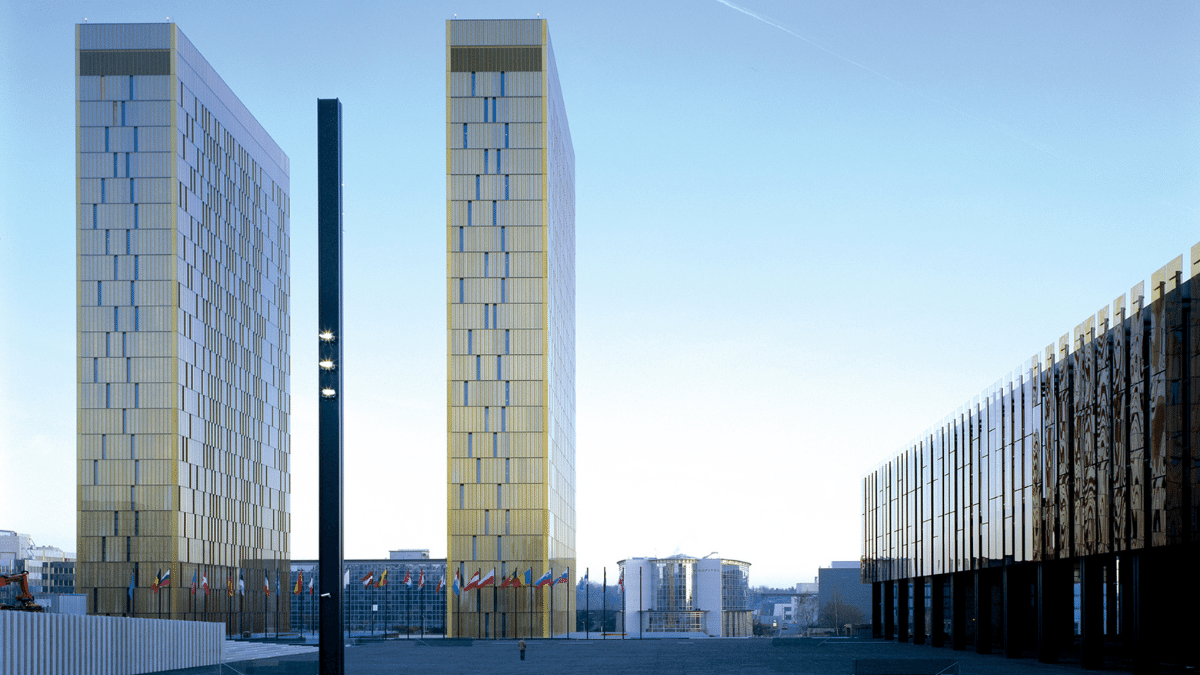
In a landmark judgement, the Court of Justice of the European Union has ruled that a child and its same-sex parents must be recognised as a family, the child should be issued a Bulgarian passport, and the family should have free movement in all Member States of the European Union.
Today, December 14, the Court of Justice of the European Union (CJEU) ruled that if one EU member state recognises a parental relationship between a child and its parents, then all member states should, in order to give the child it’s right to freedom of movement.
The case ‘Stolichna obshtina, rayon Pancharevo’ arose when a same sex couple were refused a birth certificate in Bulgaria for their infant daughter, who was born in Spain. The Bulgarian authorities asserted that the couple, one of whom is Bulgarian, could not be registered as parents on the child’s birth certificate, leaving the family in legal limbo.
Bulgarian born Kalina Ivanova* and Gibraltar-born Jane Jones* are the mothers of Sara, who was born in Spain in 2019. Under current Spanish law, the child could not acquire Spanish citizenship because neither Kalina or Jane is a Spanish citizen. The child was also denied British citizenship because Jane was born in Gibraltar of British descent, and under the British Nationality Act (1981), cannot transfer citizenship to her daughter.
Therefore, Kalina requested Bulgarian citizenship for their daughter. Bulgarian authorities rejected a request for citizenship of the child, the application, arguing that a child cannot have two mothers, and refused to issue a birth certificate in which the parents are two persons of the same sex.
Sara was therefore deprived of Bulgarian, and therefore European citizenship, and was at risk of statelessness. Currently, the child has no personal documents and cannot leave Spain, the country of the family’s habitual residence. The lack of documents restricts Sara’s access to education, healthcare, and social security in Spain.
In Bulgaria, same-sex marriages and same-sex registered partnerships are not recognised.
Today the CJEU ruled that it is contrary to the fundamental rights guaranteed by Articles 7 and 24 of the Charter for the child to be deprived of the relationship with one of her parents when exercising her right of free movement or for her exercise of that right to be made impossible or excessively difficult on the ground that her parents are of the same sex.
The ruling asserts that the Bulgarian authorities are obliged to issue an identity card or a passport to Baby Sara, which all other EU Member States are obliged to recognise.
Welcoming the ruling, Baby Sara’s parents said: “We are thrilled about the decision and cannot wait to get Sara her documentation and finally be able to see our families after more than two years. It is important for us to be a family, not only in Spain but in any country in Europe and finally it might happen. This is a long-awaited step ahead for us but also a huge step for all LGBT families in Bulgaria and Europe.
“Thank you so much to the LGBT Deystvie organisation in Bulgaria and especially to our legal representation, Denitsa Ivanova and Veneta Limberova for fighting for our family and countless others in our position. Thanks too all the people and organisations who supported us in this process: ILGA-Europe, NELFA, ACCEPT Romania and many others.”
According to Arpi Avetisyan, Head of Litigation at Europe’s leading LGBTI rights organisation, ILGA-Europe, which intervened in the case: “We are very pleased with CJEU’s judgment this morning. It gave legal endorsement to the EC President Ursula von der Leyen DL’s words, delivered during last year’s State of the Union address: ‘If you are a parent in one country, you are parent in every country’. The judgment has brought long-awaited clarification that parenthood established in one EU Member State cannot be discarded by another, under the pretence of protecting the “national identity”. This is a true testament to the EU being a union of equality and we look forward to seeing rainbow families enjoying their right to freedom of movement and other fundamental rights on equal footing to anyone else. It is important that the judgment is implemented imminently, not only for baby Sara and her family, but also for other families facing similar struggles across the EU.”
*Names have been changed.
For comment, contact Ana Muñoz media officer at ana@ilga-europe.org and +32493356055
Coman and Others v Romania

Recognition of same-sex marriages in the context of freedom of movement in the EU through the prism of implementation of CJEU’s Coman judgment.
Submitted jointly by AIRE Centre, ICJ and ILGA-Europe.
How trans parents are better protected after European Court ruling
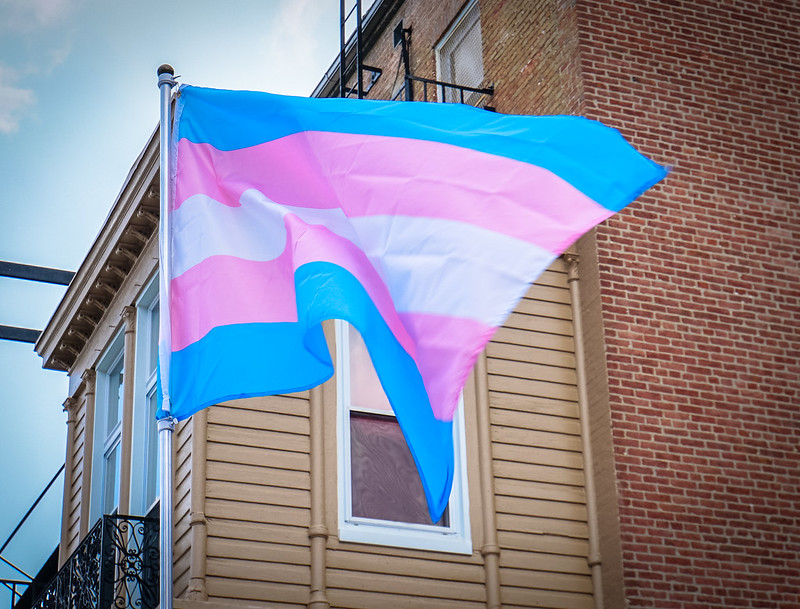
Recently, the European Court of Human Rights ruled in favour of a trans woman in Russia who was denied access to her children because of her gender identity and transition. Read on to find out how this may benefit all trans and LGBTI parents in Europe.
For four long years, A.M. did not see her own children. This was not her decision. She was denied her right to love, care for and nurture the bond with her children because of her gender identity and her transition, after her ex-spouse obtained a court order. Now, the European Court of Human Rights has ruled in her favour in a landmark judgment. This is the first time the court has found a violation of the prohibition of discrimination (Article 14) because of a person’s gender identity. It also found a violation of the applicant’s right to private and family life (Article 8).
A.M., the applicant in the case, is the parent of two children born in 2009 and 2012. After seven years of marriage, in 2015 she separated from her wife and began her legal gender recognition process to live in the gender she identifies with. She continued to see her children for over a year, until a district order obtained by her ex-partner cut off visitation in 2017.
The Russian courts argued that the decision to restrict the applicant’s parental rights was necessary, as contact with the trans parent would have a “negative impact on the mental health and psychological development” of her children. It also claimed that visitation could violate so-called propaganda law, which bans public statements in relation to LGBTI people in Russia.
However, the European Court of Human Rights noted that the domestic courts made their decision “in the absence of any demonstrable harm to the children,” failing to demonstrate that the restriction was justified and well-substantiated. Notably, the court found that the applicant had been discriminated based on her gender identity in comparison to other cis parents, saying that she has been “treated differently from other parents who also seek contact with their estranged children, but whose gender identity matches their sex assigned at birth.” It also added that depriving A.M. of any contact with her children could “have irremediable consequences for relations between the child and the parent with whom that child does not live.”
The court awarded the applicant €9,800, even though she had not asked for pecuniary compensation, concluding that “such damage cannot be compensated for solely by the finding of a violation.”
Every fourth trans person in Europe is a parent and this judgement gives legal security to many of them. Now it has been confirmed that discrimination based on gender identity, prohibited under the European Convention, applies in parental rights cases. If you are a good parent, that’s what matters, irrespective of your gender identity
From a children’s rights perspective, when someone tries to limit parental rights for trans and LGBTI parents more broadly, the main argument used is that it is has detrimental effect on children. In other words: they say children would suffer because of their parent’s gender identity. The court has made clear that it is in the best interest of the child to have a loving parent and that to restrict visitation just because a parent is trans is not a good enough reason.
The European Court of Human Rights is the court of law of the Council of Europe, of which Russia is a member. Judgments of the European Court of Human Rights are binding on all Council of Europe Member States; however, Russia has ignored the rulings several times. In 2020, draft amendments to the Russian Family Code would have seriously negatively affected legal gender recognition procedures. In November these amendments were withdrawn.
“We call upon the Russian authorities to respect the court’s decision and immediately end the discrimination of trans families,” said ILGA-Europe’s Executive Director, Evelyne Paradis.
European Court rules in favour of the best interest of the child in same-sex custody case
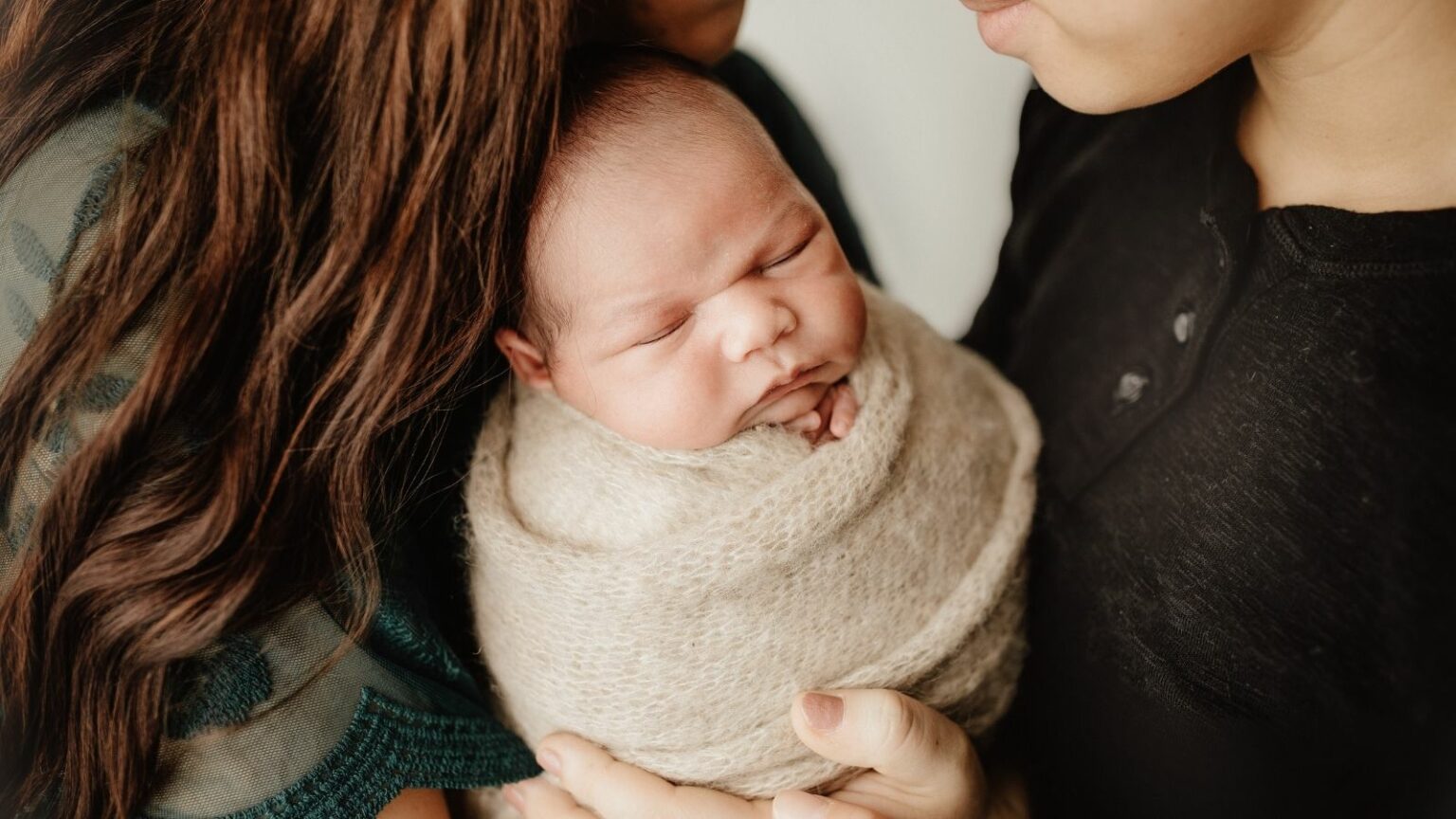
The European Court of Human rights has ruled that the refusing a mother custody of her youngest child on the grounds of her sexual orientation to be discriminatory and a violation of her right to private and family life.
In a judgement released today on the case of X. v Poland, the European Court of Human rights found the refusing a mother custody of her youngest child on the grounds of her sexual orientation as discriminatory and a violation of Article 14 (prohibition of discrimination) in conjunction with Article 8 (right to respect for private and family life) of the applicant.
The case concerned custody arrangements of applicant’s youngest child following her divorce. The main consideration of the courts was that the applicant, the mother of the child, was in a relationship with another woman. She alleged that the courts had acted in her former husband’s favour because of her same-sex relationship.
The Court found that there was “a difference in treatment between the applicant and any other parent wishing to have full custody of his or her child”. Moreover, the Court considered that the discriminatory reference to the importance of a male role model for the boy’s upbringing, which was one of the decisive factors in the dismissal of the applicant’s requests for custody, had outweighed the other arguments: child’s young age, strong bond with the applicant and wellbeing while living with his mother. This reliance on the male role model was discriminatory.
Taking into account that throughout court proceedings, applicant’s sexual orientation and relationship with another woman had been repeatedly referred to as a ground for refusal, the Court concluded that, in “refusing to grant the applicant full parental rights and custody rights in respect of [the youngest child], the domestic authorities made a distinction based solely or decisively on considerations regarding her sexual orientation, a distinction which is not acceptable under the Convention.”
ILGA-Europe had intervened in this case jointly with the International Court of Justice (ICJ), the International Federation for Human Rights (FIDH) and Network of European LGBTIQ* Families (NELFA).
According to Arpi Avetisyan, ILGA-Europe’s Head of Litigation, “Today’s judgment confirms the rights of LGBTI parents to their children on an equal footing as everyone else. The best interests of children to receive parental love and be cared for should prevail in custody considerations, irrespective of parents’ sexual orientation.”
The applicant was awarded EUR 10,000 in respect of non-pecuniary damage.